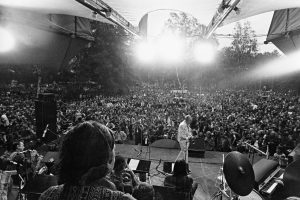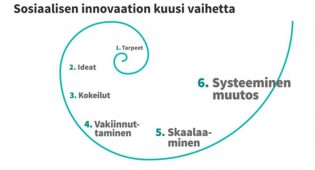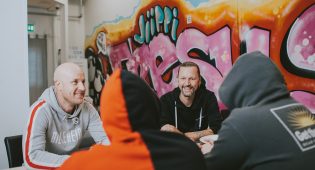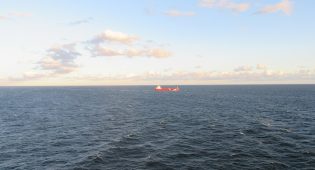Holistic thinking – about time?
29.03.2020We live in silos. All disciplines and sectors of society are separated in their own systems. Organisations, free-lancing or something in between. People try to figure out which system they belong to. Am I a student, unemployed, entrepreneur or worst, something in between?
When we talk about creative societies, we measure most often their progress and success through money. Money is a tool needed for many things. We all know that. But have we forgotten to think of where we want to go with that tool?
Have we forgotten the skill of how to combine skills? We talk of multi-disciplinarily and its importance, but we still hold our thoughts as and thinking of being “experts” in our own skills? Can we even analyze skills that are not seen through traditional cv:s or bios.
Creative Industries can have impact
Maybe something to be learnt from artistic ways of describing ones competencies. Our challenge today is not to push only purely on individual levels.
Maybe technology and arts & humanity could looked into in holistic ways, thinking of why we are in this planet in the first place? Are these questions taught on discussed in school?
Arts and sciences are really not that far apart. They both try to describe the world we live in, at best, beautifully – why not unite different skills-sets and disciplines to describe what we know today.
Measuring is a creative field – we get what we measure, but do we get to where we need to?
If we get people to work cohesively pushing each other, how do we measure their progress as a group of men, women in different contexts? Companies, the public sector often measure progress through numbers. But what do we actually measure? What about free-lancers, NGO’s volunteers and all the people who were just there to make the difference?

We need to focus on the questions what and how and for whom? Are we measuring the progress by using numbers only? What are the answers we really would benefit from in the end? How much time do we give to that in our processes? Like Petri Virtanen (2005, 185) who is a docent in administrative science, says that when thinking about measuring or evaluating actions/a project, it needs to be concentrated that for whom is the measuring done for.
Tools
When a project group has a measuring tool ready, it needs to be remembered that it’s not only a tool, which needs to be written online. Workpackages as part of projects or anything else we do in life can be reviewed and rewritten, but only if people get along. When one workpackage is done, it’s imporant to review the progress of the project together and the results and tools of measurement. For instance, when the group is around the table to reflect how their project is going, and share their feelings and feedbacks, they become aware of just working together between different people, and finding sometimes links that no one thought of before.

When the group is 100 % aware of what is going on, and are clear on everybody’s roles, it’s important to generate possibilities for next steps. We become responsible the more we become aware. The importance of letting each person recognize strengths and fields they need to develop individually is something which importance can be overempathized. Being an open-minded individual makes it easier to choose which parts are crucial to be looked at a potential partner for the next project. (Hellström, Johnson, Leppilampi & Sahlberg 2015.)
Our last statement in this article: Legendary founder of Pori Jazz Festival Jyrki Kangas passed away on 28.2.2020 evening. He has made a mark in so many people in Finland and way beyond. Just one of his most memorable sayings that we remember from him is that ”there’s a huge force in networks and you never know who’s help you are going to need.” This quote stays on our minds while writing this article and starting with building our networks and measuring their progress as he showed us.
References:
Hellström, Martti & Johnson, Peter & Leppilampi, Asko & Sahlberg, Pasi 2015. Yhdessä oppiminen. Yhteistoiminnallisuuden käytäntö ja periaatteet. Helsinki: Into Kustannus
Virtanen, Petri 2005. Houkutteleva työyhteisö. Helsinki: Edita
Check also:
Creative Industries Finland (only in Finnish, but freely available at: http://www5.siba.fi/documents/87219/841761/JOHDE_Nakokulmia_johtamiseen.pdf/5cabc45a-808a-485b-9b10-9f8280f3f0d9






































